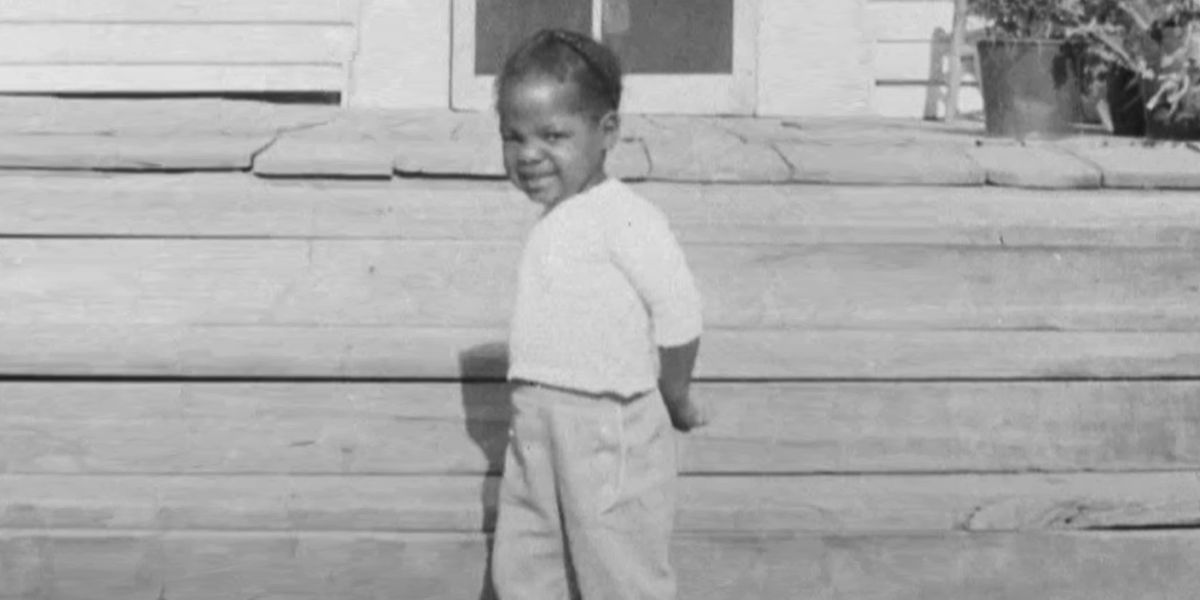
A girl born into poverty, raised by a strict grandmother, and forced to endure harsh circumstances might have seemed destined for hardship. But she defied the odds stacked against her, making a mark on the world in ways few could have imagined.
Born in rural Mississippi, this young girl’s life was shaped by the struggles of her early years. Her mother gave birth to her at just 17, with no formal education, no job training, and no clear path forward.
The family lived without running water, relying on a well for their needs, adding to their daily challenges. This was a time of physical and emotional trials, which would later shape her deeply.
A Childhood Marked by Hardship
It wasn’t her teenage mother who brought her up. Her grandmother, a maid and domestic worker, left the deepest mark on her upbringing. Through tough love, she instilled a sense of discipline, though the environment was far from nurturing.
Growing up on a farm in Mississippi, the girl was expected to follow a rigid set of rules. She often recalled the harsh punishments, including beatings for even minor infractions, such as playing with water on her way back from the well.
These incidents left lasting physical and emotional marks. One particular memory involved being whipped so severely that one of the welts on her back bled through her dress as she prepared for church.
This kind of punishment was common, and she was expected to endure it without complaint. Her grandmother believed in tough love, which was typical of the time and environment. These formative experiences would later shape her empathy for others who faced similar hardships.
Additionally, her grandfather’s dementia cast a long shadow over her childhood. She often felt unsafe, especially at night. One terrifying incident remains etched in her memory. She woke up one night to find her grandfather’s hands around her grandmother’s neck.
Her grandmother managed to push him off and escape, but the fear lingered. From that night on, they slept with a chair under the doorknob and tin cans around it, a makeshift alarm system to alert them of any danger.
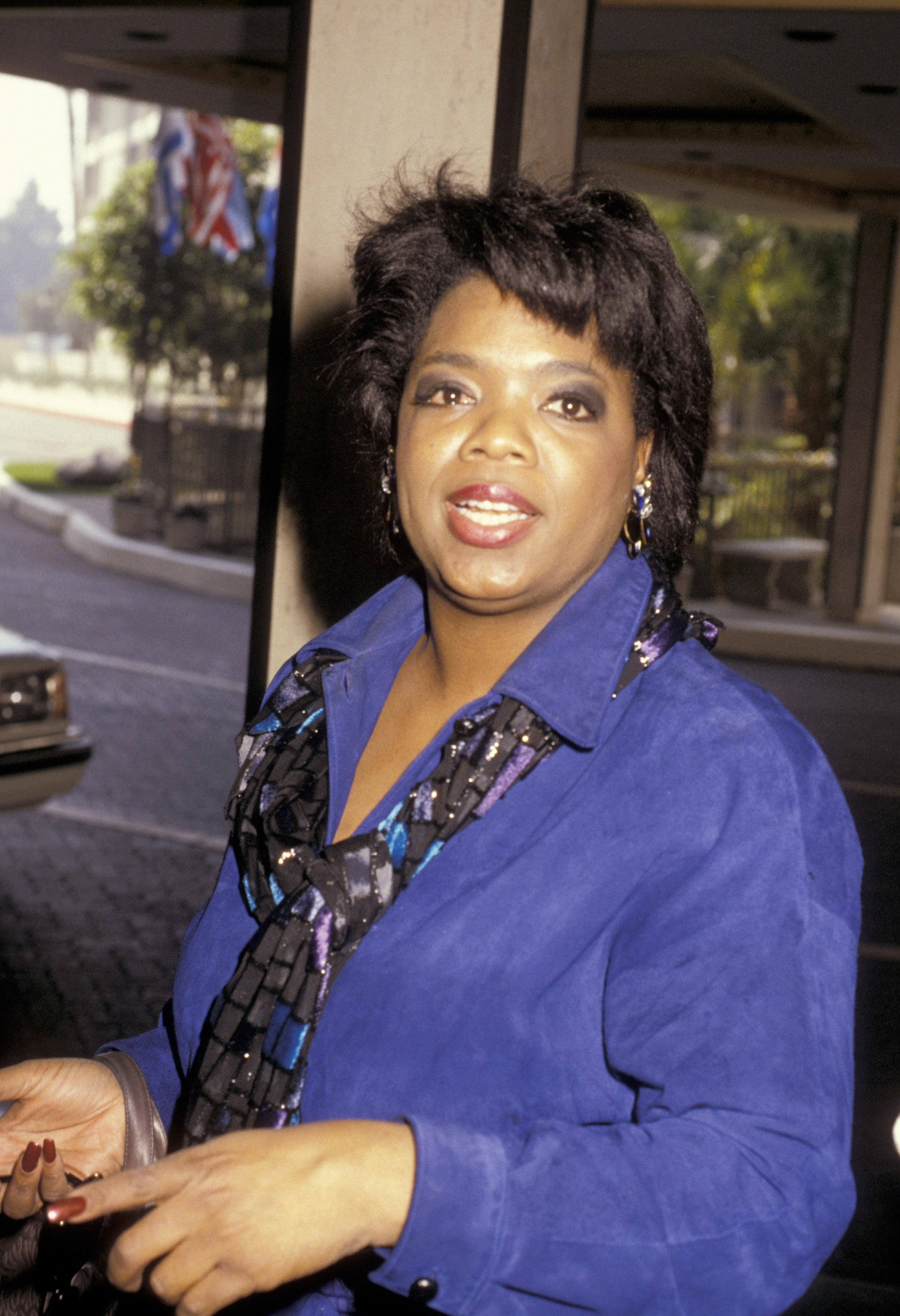
The girl, now all-grown, is pictured on January 24, 1986 | Source: Getty Images
This constant state of alertness left her feeling perpetually unsafe and contributed to her resilience and vigilance. As if that wasn’t enough, she was raped by her uncle years later, which resulted in a pregnancy when she was 14. She never got to have the baby as she miscarried, but the experience was traumatic for her.
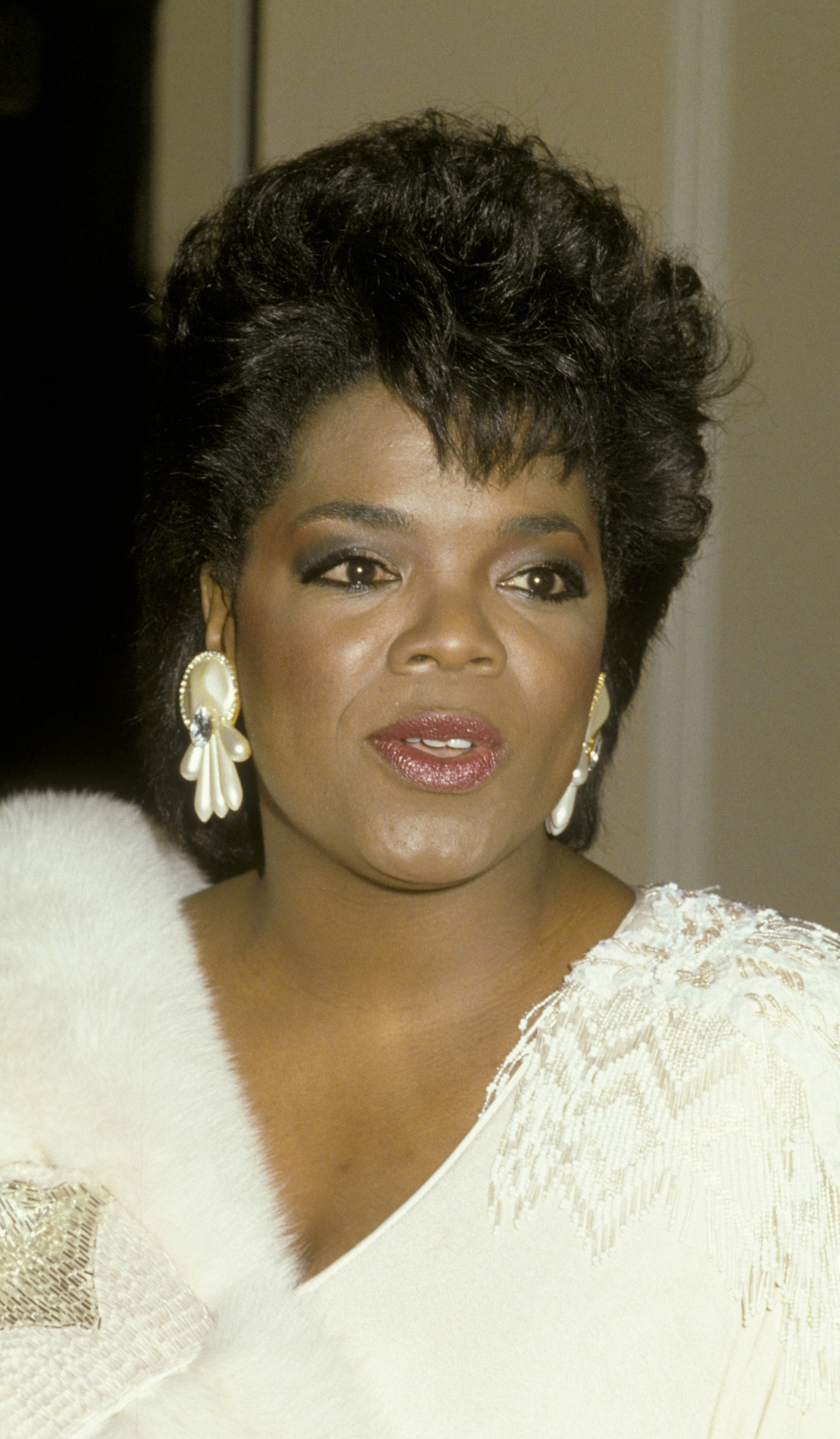
The girl seen on January 24, 1986 | Source: Getty Images
Finding Healing Through Work
Despite the overwhelming pain she endured during her childhood and teenage years, she discovered a way to transform her trauma into something powerful. As she grew older and began her career, she found that her life’s work allowed her to confront these difficult experiences head-on.
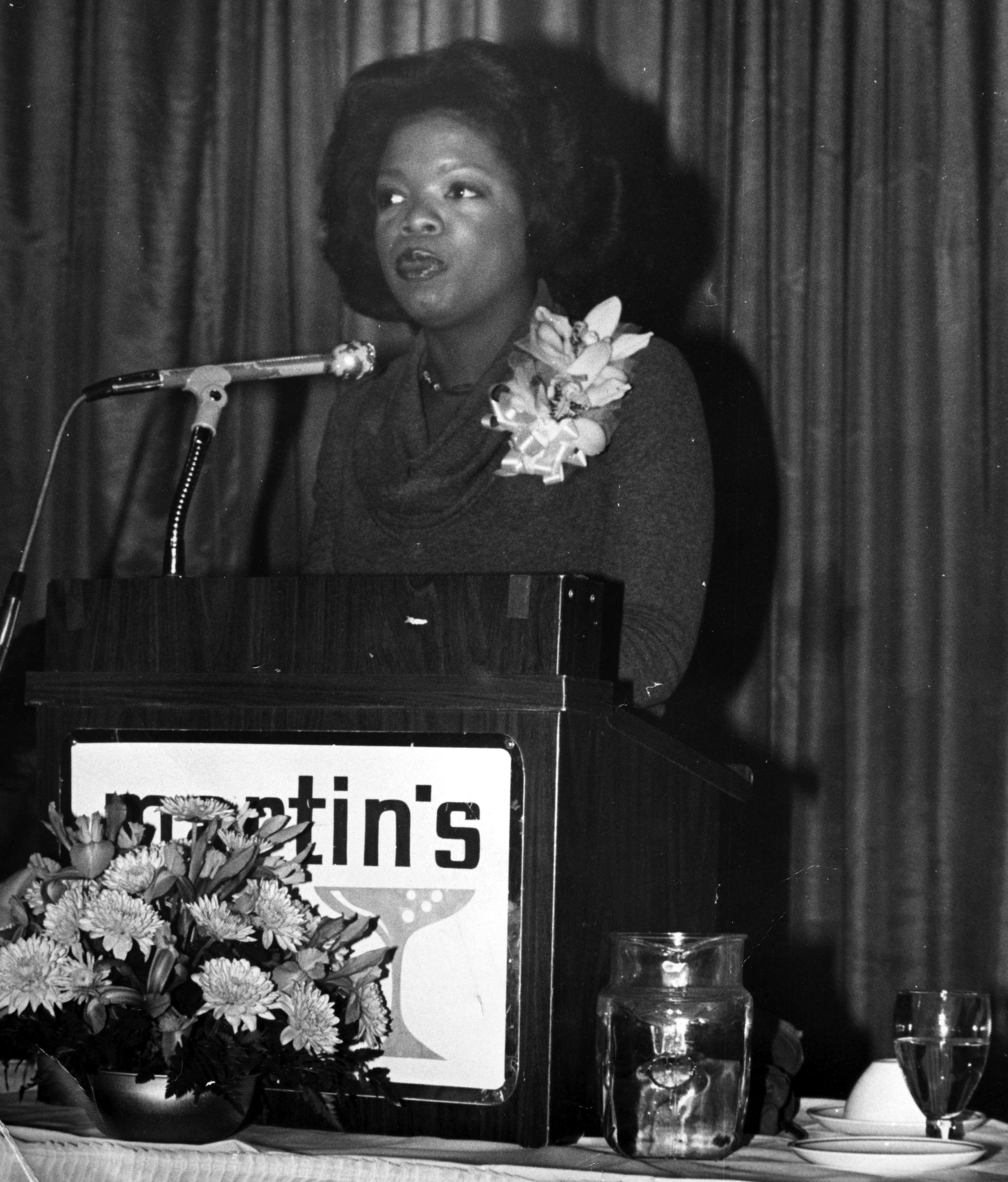
The now-grown girl speaks at a podium early during her career, January 20, 1978 | Source: Getty Images
Hosting her talk show became a form of therapy for her and many of her viewers. Her ability to openly discuss challenging topics, such as abuse and trauma, resonated with millions. She once shared that her show provided a platform for healing, not just for herself but for others who had gone through similar experiences.
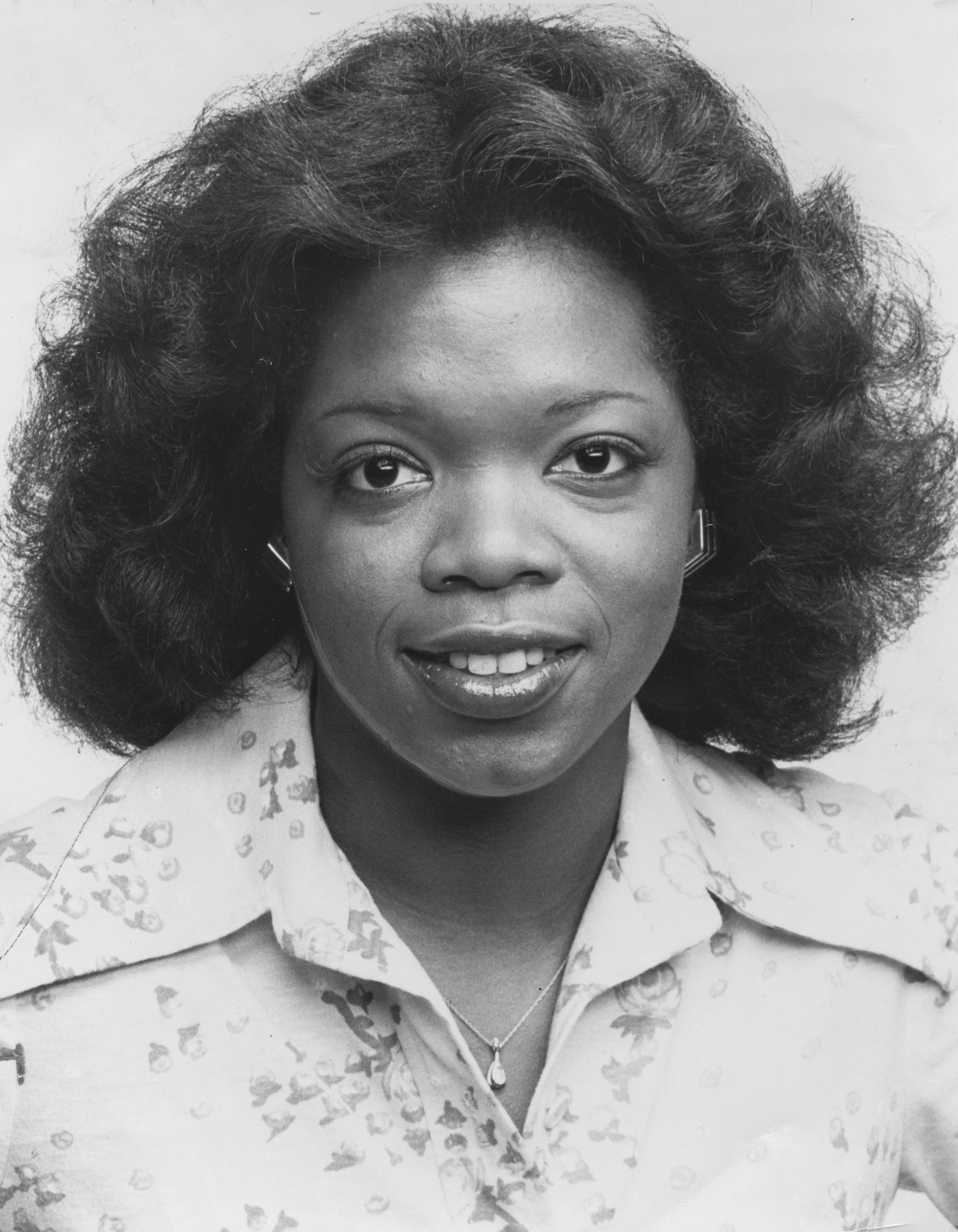
A portrait of the then-co-anchor on June 26, 1978 | Source: Getty Images
Through these conversations, she found that sharing her story could help others find solace in their struggles. Her work was more than a job — it became a mission to help others by giving voice to the struggles she had once endured in silence.
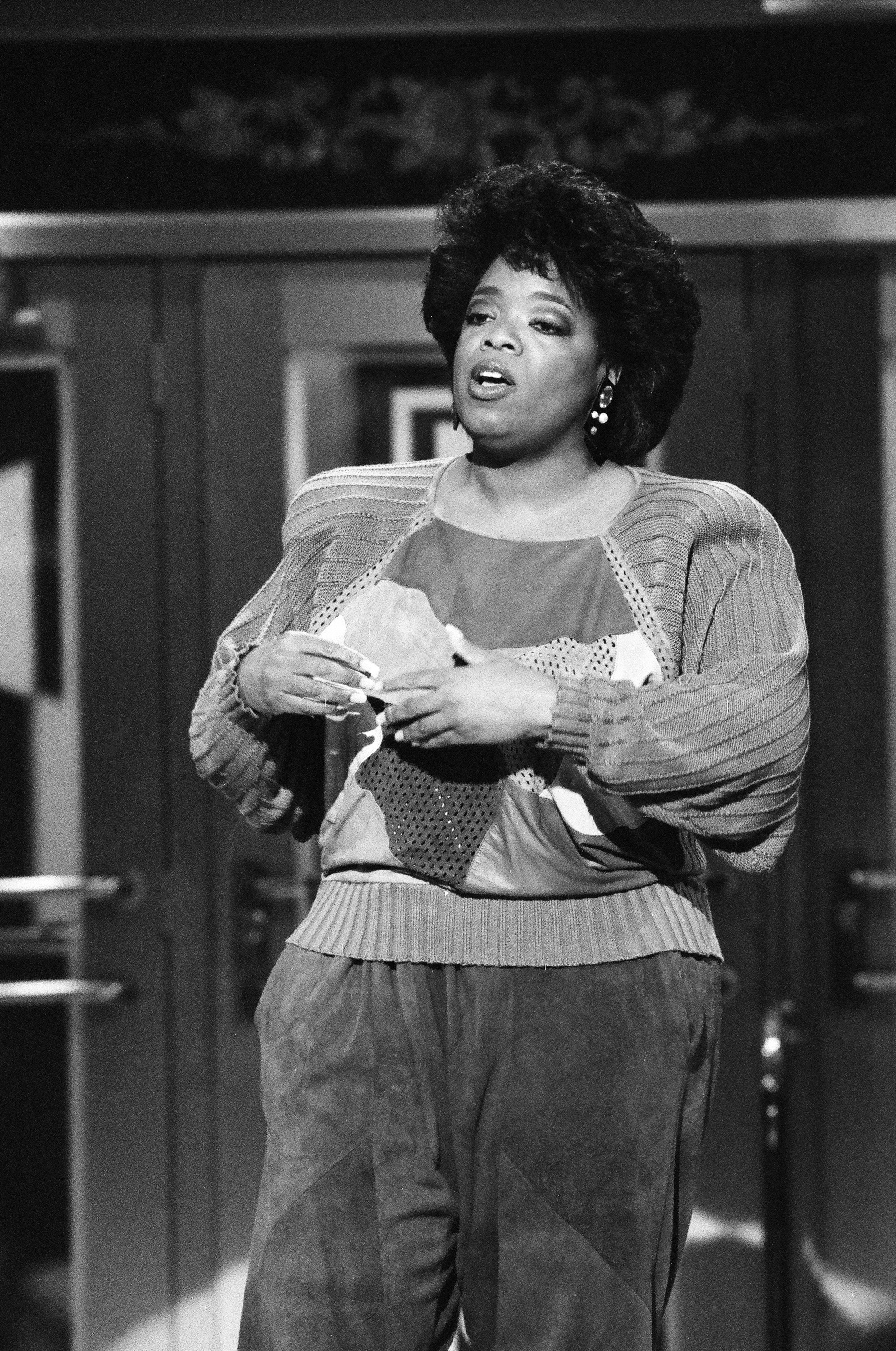
The show host on April 14, 1986 | Source: Getty Images
Faith was also a pillar that helped her endure the pain. Although her grandmother was strict and didn’t show affection, she passed down a belief system that gave the young girl hope. “She did give me Jesus,” she once shared, adding that this faith gave her a sense of something larger than herself to believe in.
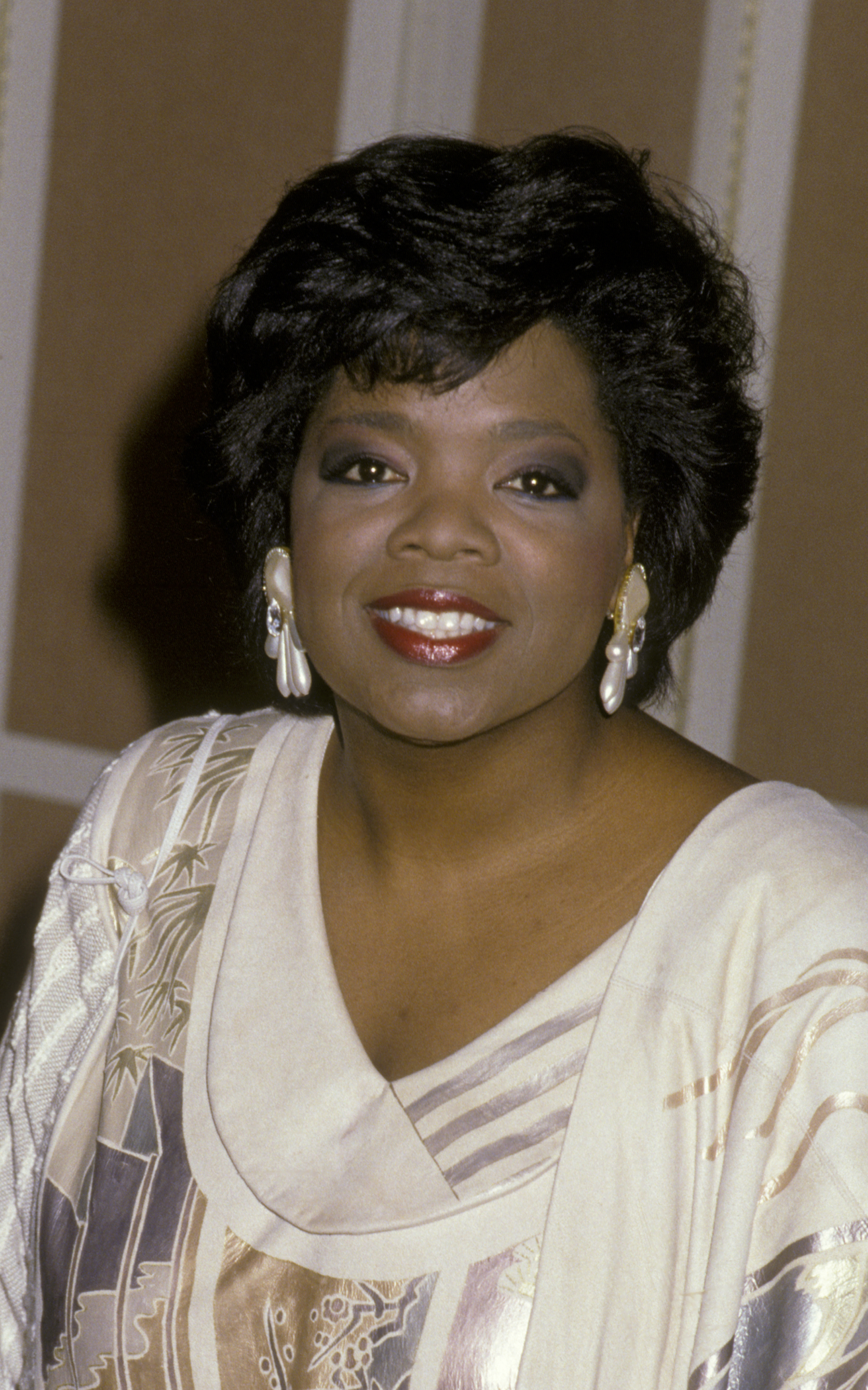
The show host pictured on March 13, 1986 | Source: Getty Images
Through her struggles, faith became a source of inner strength that helped her overcome the darkest moments of her life. “I am grateful for that,” she said. This faith would remain a constant in her life, guiding her through her career and personal growth.
From Hardship to Global Fame
The girl who faced poverty, abuse, and countless hardships is none other than Oprah Winfrey, one of the most influential figures in media. Her journey from humble beginnings in Mississippi to becoming a global icon is extraordinary.
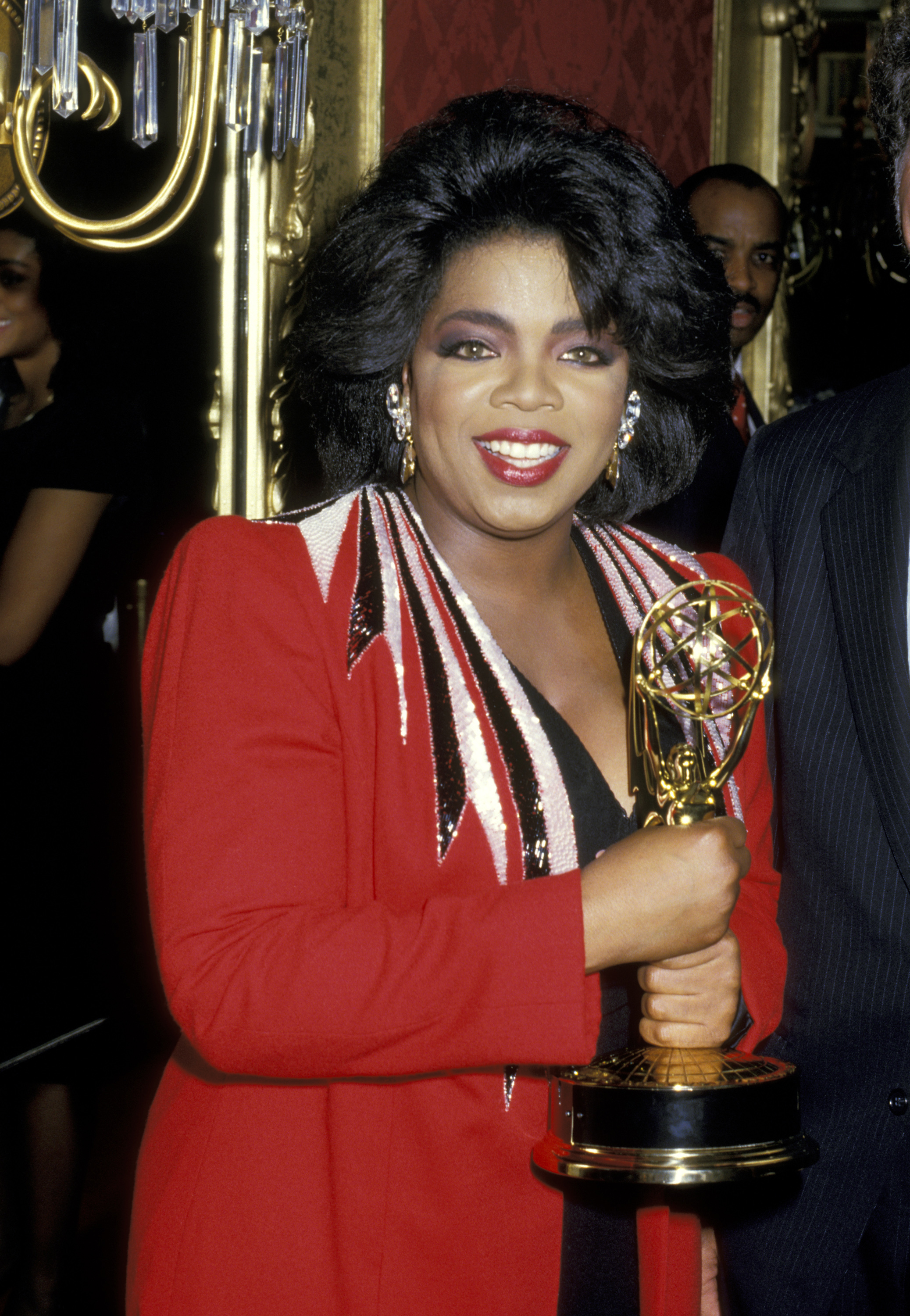
Oprah Winfrey attends the 14th Annual Daytime Emmy Awards on June 30, 1987 | Source: Getty Images
She rose to fame as the host of “The Oprah Winfrey Show,” which became the highest-rated talk show in history, running for 25 years. Reflecting on her success, Oprah often credited her challenging childhood for giving her the strength to empathize with others.
“I wouldn’t take anything for having been raised the way that I was,” she said. Oprah further explored her journey in the book “What Happened to You? Conversations on Trauma, Resilience, and Healing,” co-authored with Dr. Bruce Perry.

Oprah Winfrey on “The Late Show” on January 3, 2016 | Source: Getty Images
In the book, Oprah candidly discusses her childhood trauma and how those experiences shaped her life.
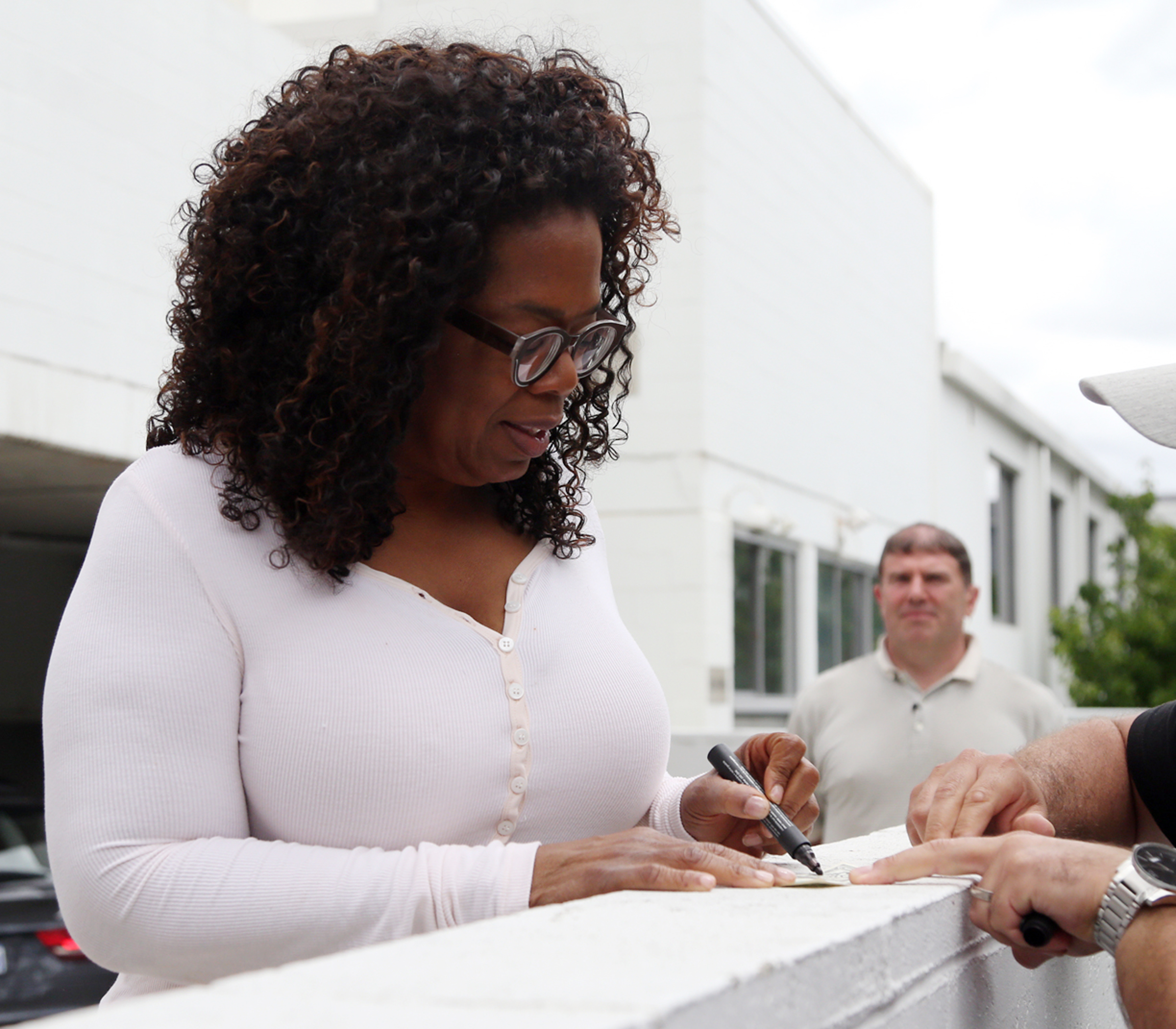
Oprah Winfrey meets fans outside a hotel on December 5, 2015 | Source: Getty Images
A Journey of Personal Evolution and Family Connections
As Oprah’s career soared, her personal growth also took center stage. Over the years, she evolved from someone who once sought validation from others to a woman standing confidently in her truth. A key turning point in this transformation came when she read Gary Zukav’s book, “The Seat of the Soul.”
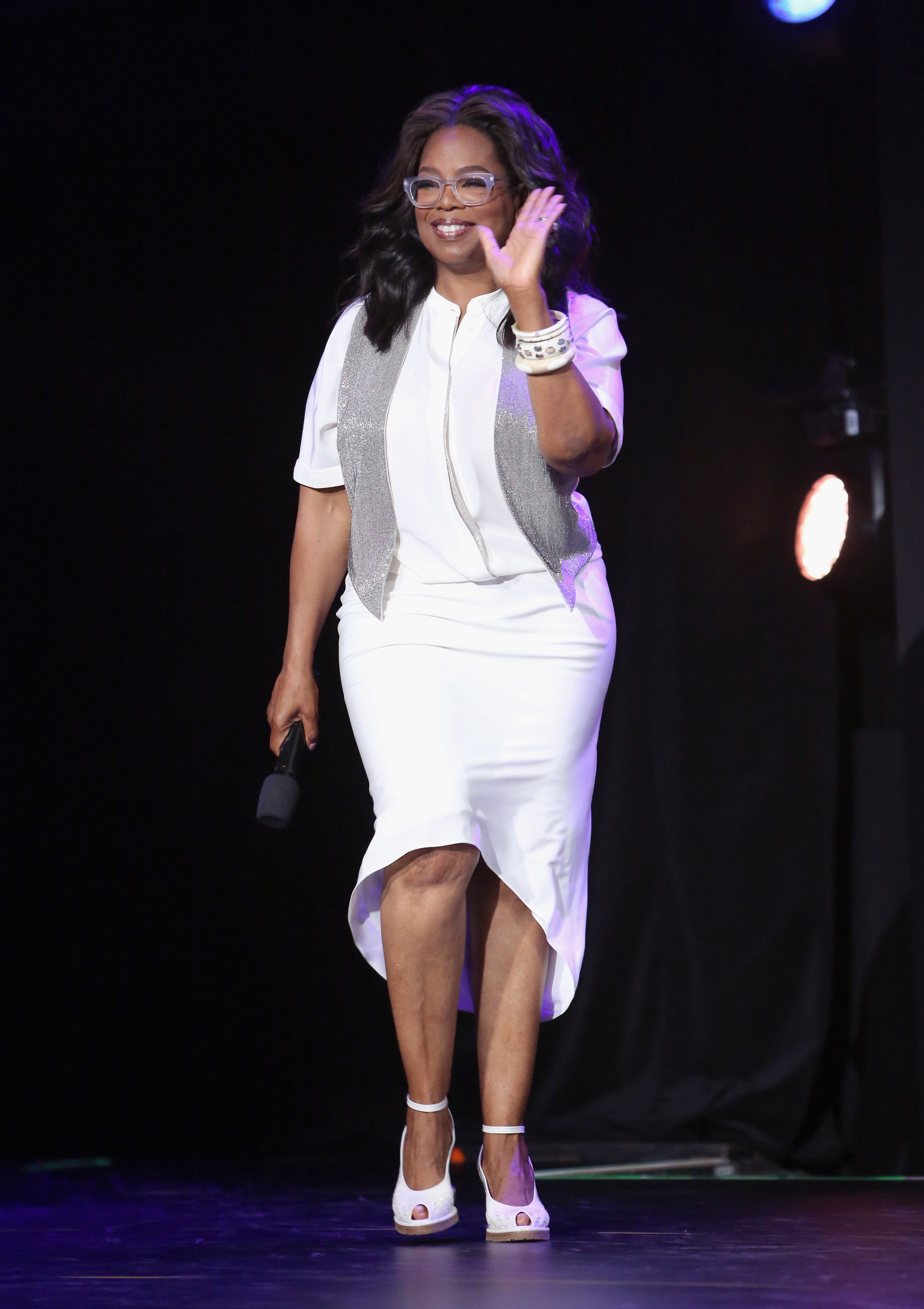
Oprah Winfrey is pictured on March 9, 2018 | Source: Getty Images
The book’s lessons about intention and inner strength helped her find her voice and live authentically. Having a family has also played a significant role in Oprah’s life. In a touching twist, she discovered a long-lost half-sister, Patricia Lofton, in 2010.
Patricia had been given up for adoption shortly after birth, and after many years of searching, she reconnected with Oprah. The two bonded quickly, and Oprah even helped Patricia achieve her dreams by paying for her college education.
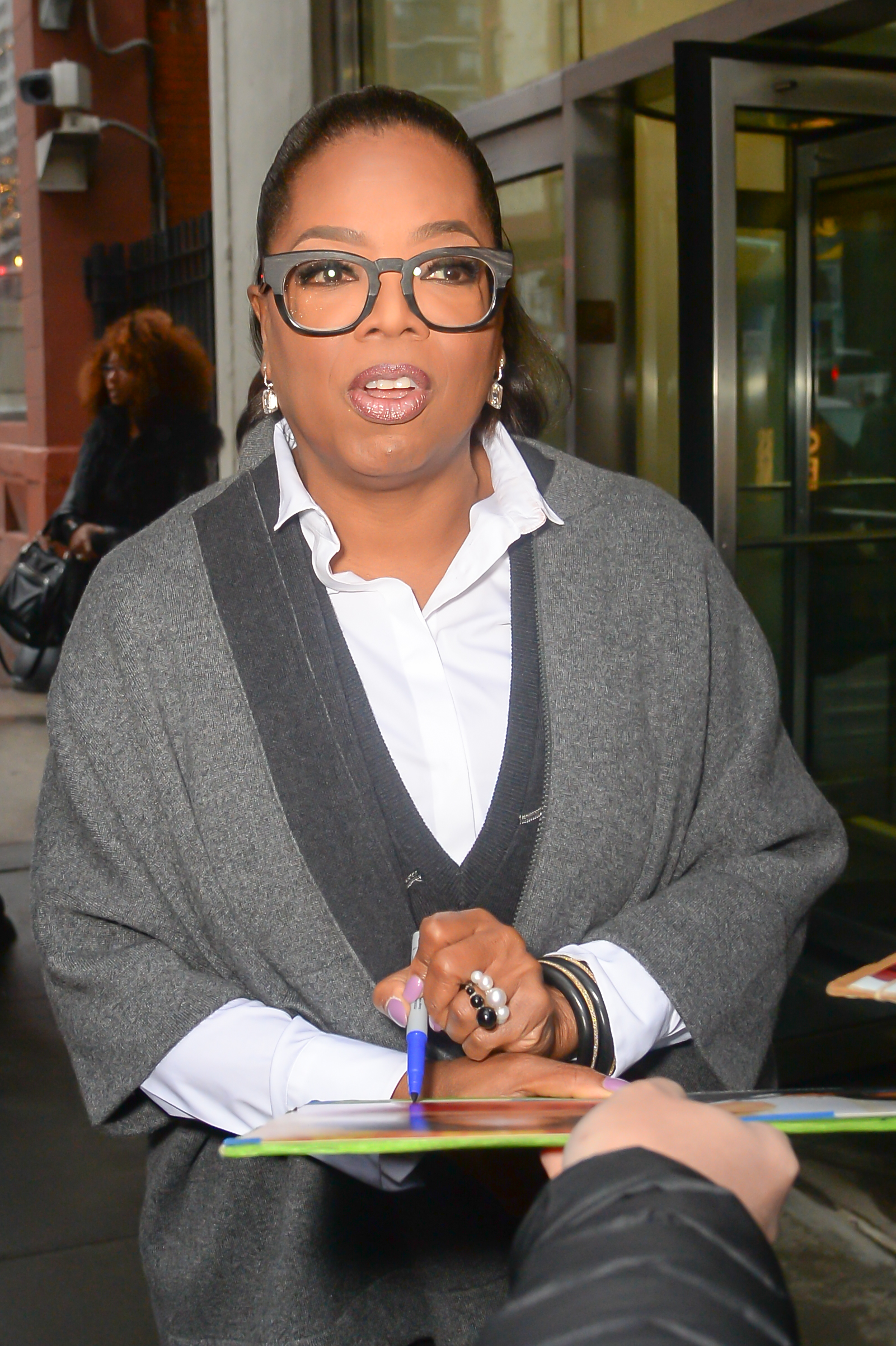
Oprah Winfrey is seen on January 3, 2017 | Source: Getty Images
In 2017, Patricia graduated from the University of Wisconsin-Milwaukee with a degree in social work, and Oprah proudly attended the ceremony. Their reunion brought Oprah’s personal journey full circle, reminding her of the importance of family, even after years of separation.
Living Without Regret: A Life of Reflection and Fulfillment
In 2011, Oprah Winfrey brought her groundbreaking show, “The Oprah Winfrey Show,” to an end after 25 years of success. Wrapping up her nationally syndicated talk show wasn’t the end of her media influence — Oprah launched the “Oprah Winfrey Network” (OWN) in the same year.
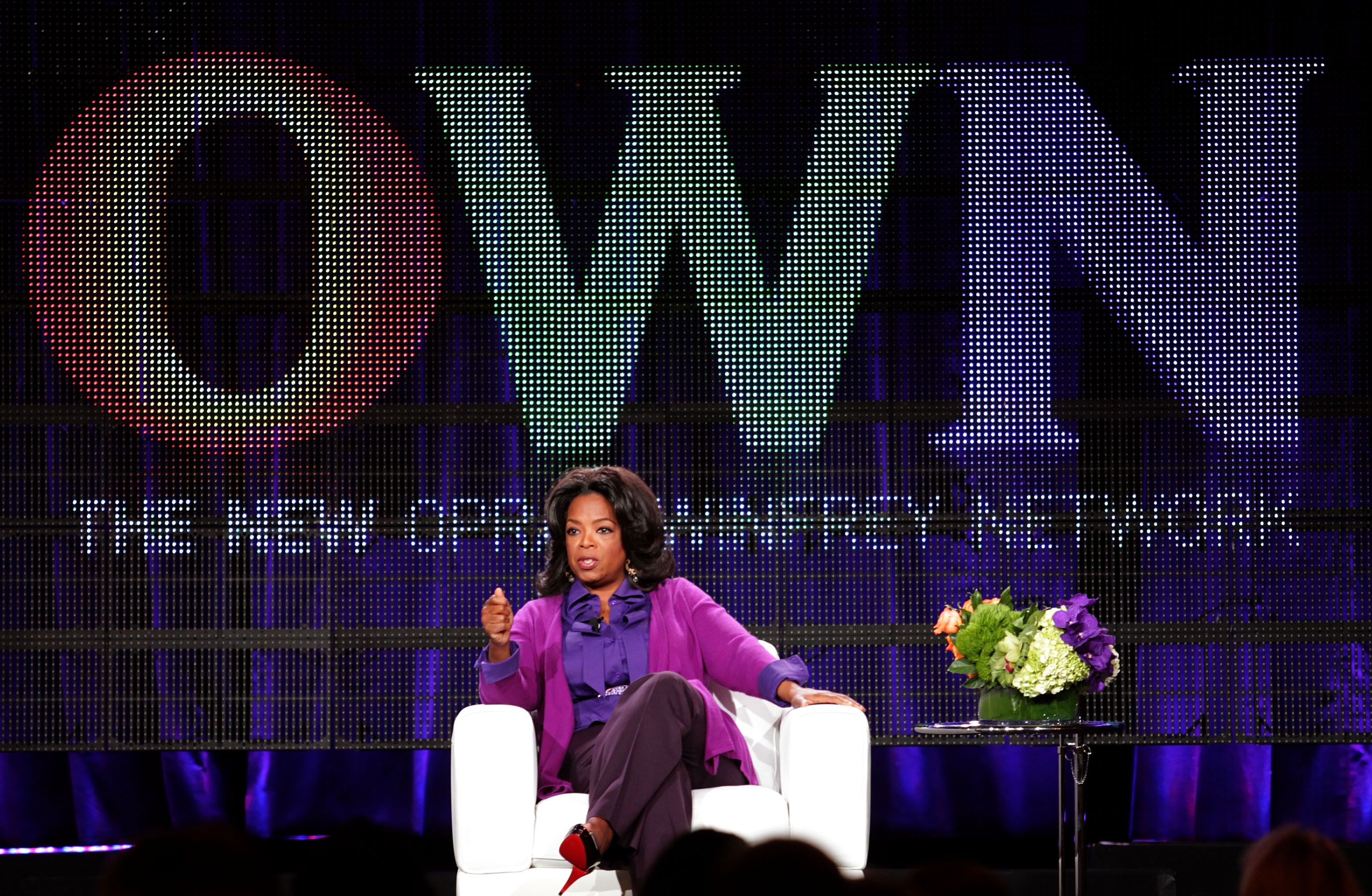
Oprah Winfrey speaks during the “OWN: Oprah Winfrey Network” portion of the Winter TCA press tour on January 6, 2011 | Source: Getty Images
Looking back, she acknowledged that the transition wasn’t as smooth as she had hoped. “I should’ve completed one thing, taken a year to do nothing, and then decided what was the next thing for me to do,” she reflected.
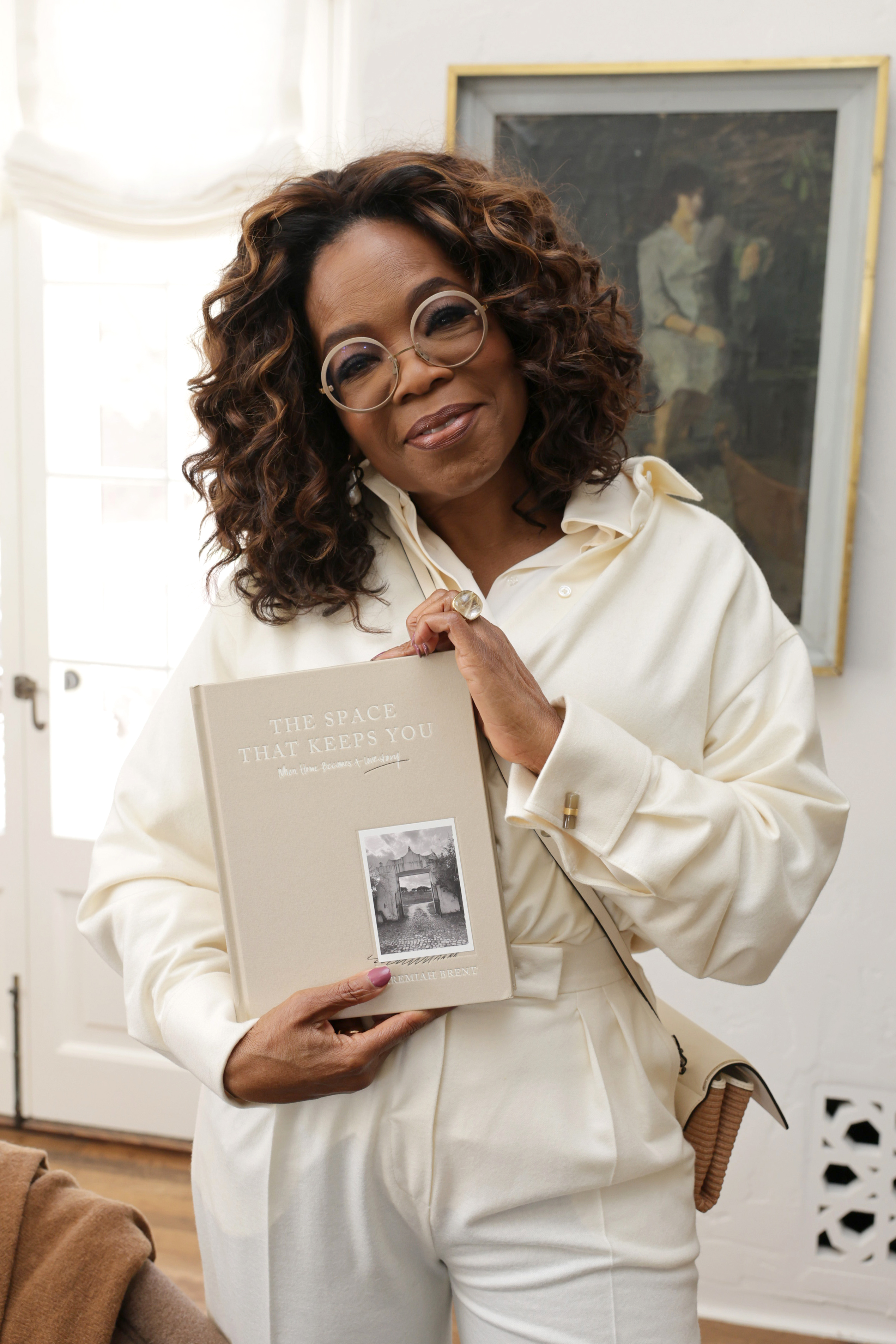
Oprah Winfrey attends a book launch party on March 2, 2024 | Source: Getty Images
Oprah has since expressed that, while she doesn’t regret ending the show, she regrets not giving herself time to pause and reflect. “What I do regret is trying to do multiple things at the same time,” she said.
Reflecting on her own advice, she added, “I would’ve done the thing that I tell everybody else to do… When you don’t know what to do, do nothing. Get still with yourself and do nothing.”
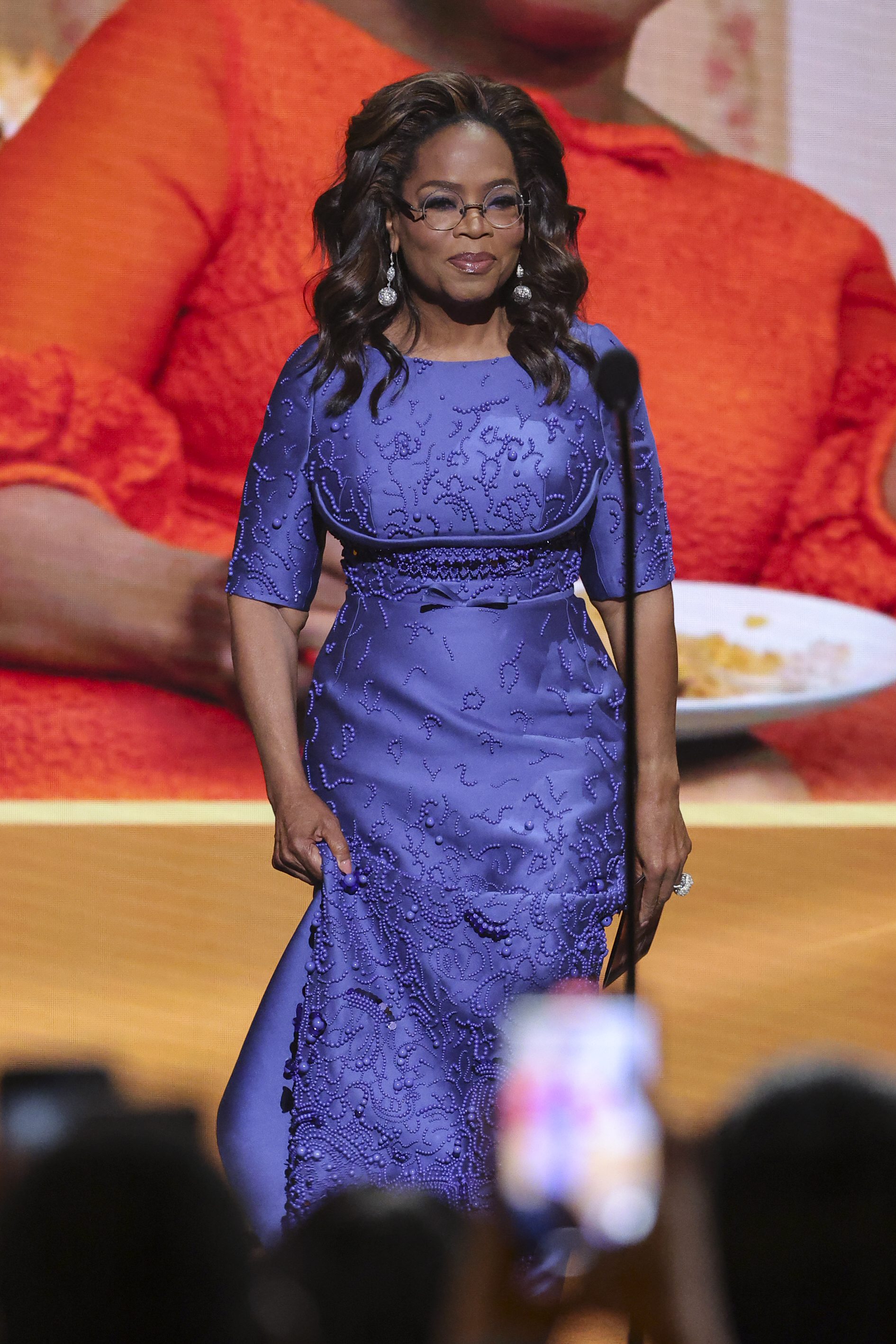
Oprah Winfrey at the 55th NAACP Image Awards held on March 16, 2024 | Source: Getty Images
One choice that Oprah has no regrets about is deciding not to get married or have children. Oprah and her longtime partner, Stedman Graham, were once engaged. However, she decided against marriage, feeling it would have led her down a path that conflicted with her goals.
Oprah has shared several reasons for her decision not to have children. She has mentioned that she realized the immense responsibility and sacrifice required to be a mother through her interactions with many people on her show who had difficult relationships with their parents.
She felt that she wouldn’t be able to balance motherhood with her demanding career. Instead, the TV host found purpose and joy in mentoring and supporting others, particularly the young women at the Oprah Winfrey Leadership Academy for Girls in South Africa.
“Those girls fill that maternal fold that I perhaps would have had. In fact, they overfill — I’m overflowed with maternal,” Oprah stated. Another source of satisfaction for her has been the moment of closure she experienced with her mother, Vernita Lee.
In November 2018, Vernita passed away at 83 on Thanksgiving. Knowing her mother’s time was short, Oprah had sought to ensure nothing was left unsaid. During her visits, she read a hospice care guide to find the right way to say goodbye.
At one point, she played Mahalia Jackson’s “Precious Lord” on her phone and called Gospel singer Wintley Phipps to sing the song live over FaceTime.
The gesture helped open her mother up emotionally, giving Oprah the chance to thank her for her sacrifices and to tell her to go in peace. Her half-sister, Patricia, also forgave Vernita during this time, creating a sense of healing and closure within the family.
Oprah has long emphasized the importance of pausing to reflect and listening to one’s inner voice. “Every time I’ve just gotten still and listened to what my gut said… I have never made a mistake,” she shared.
On January 29, 2024, Oprah turned 70. Looking back, she stands firmly by her choices, finding contentment in the life she has built and the impact she has made.